A School
for Families
A Shuttered School Becomes a Space for Kids to Learn
about Life from Nature and their Families
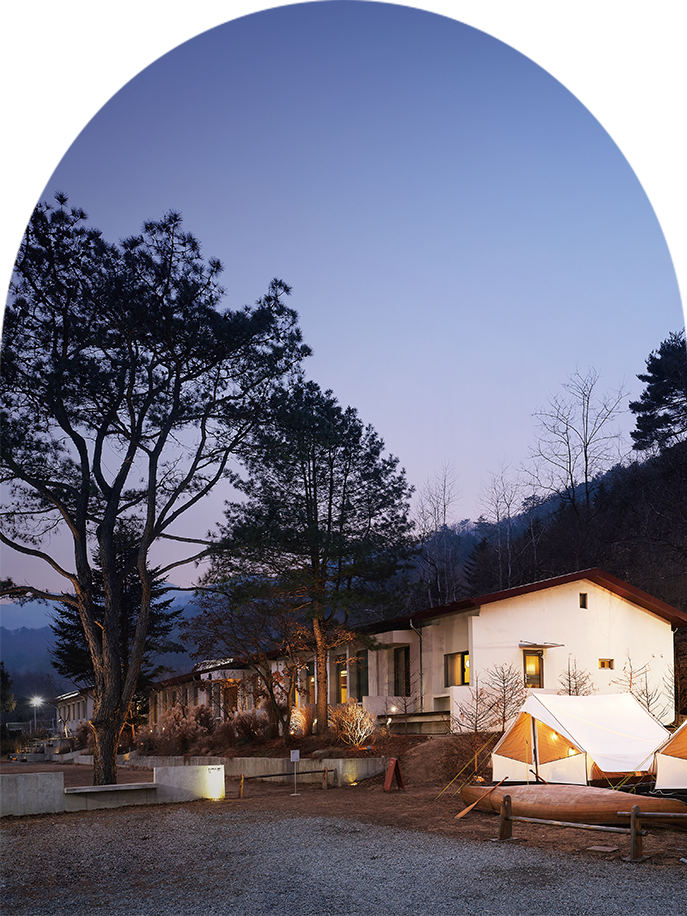
WRITTEN BY
Choi Sang Hee,
owner of Owol School
Photographed by
Studio Kenn
As Korea grows increasingly urban, rural schools are rapidly closing. Unlike most such schools that now stand silent, one abandoned school in a mountain valley in Gangwon-do is once again alive with the sound of children. Embracing its past identity as a “school,” Owol School continues to serve as a place of learning for young people.
Owol School’s predecessor is the Jiam Elementary Branch School. During the 15 years after the school opened in 1969, students who could not travel all the way to the area’s main elementary school would go here. The school was so small that all the students had to take classes in just one classroom. When slash-and-burn farmers left the area, the school’s student body shrank so much that the school ultimately closed in 1982.
The school’s appearance has changed several times since its closure. It was neglected in between the periods it was used alternatively as a prayer retreat and outdoor military exercise training camp. Then, in 2019, a couple bought the school, and after six months of remodeling, reopened it as “Owol School” on Oct. 23, 2020.
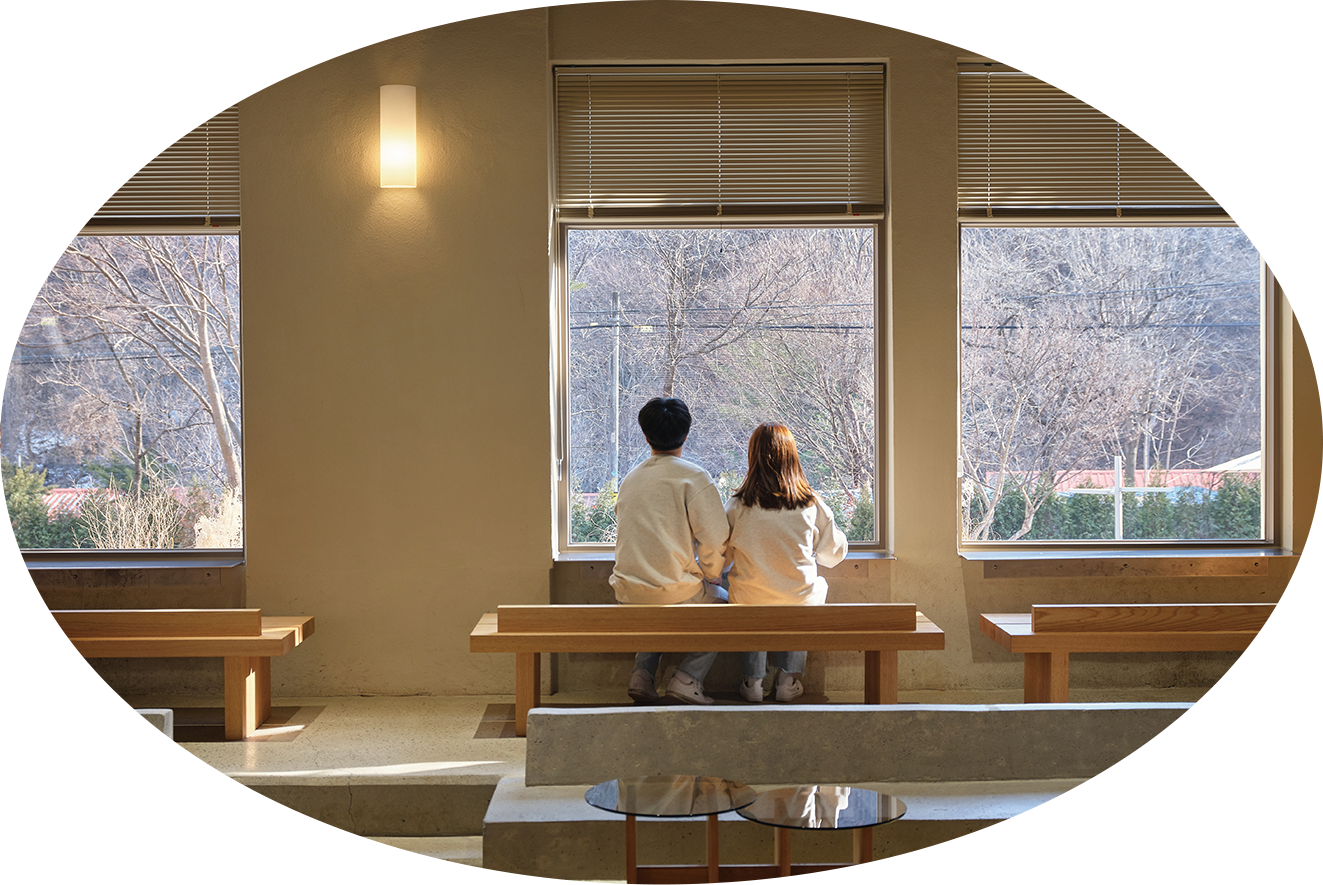
Visitors to Owol School take in the scenery through a window.
Keeping Memories of
the School Alive
As the “school” in the name suggests, Owol School still has traces of the old elementary branch school. The main building, which has a café and dormitory, still has its old ceiling terrace to remind people of the stories the old building contains. Meanwhile, the floor boards have been carefully removed and meticulously turned into the walls. As a result, the school’s old classroom has been turned into a café and dormitory open to anyone. The space used for the old school’s storehouse has also been turned into a restaurant with its old floors, trusses and window holes still in place to provide a space where kids can eat healthy meals with their parents.
One of the most popular areas of the school is the dormitory, where visitors can make friends with nature, the world’s most wonderful teacher. At night, the light of the stars come in through the windows on the ceiling, while on the terrace, which faces a forest, visitors can hear the sound of water in the valley along with the singing of birds. Visitors who stay in the dormitory can feel nature with all their senses and rest, just like students of the past.
The only new space created at the school is the “glamping” area outside. This area is where, surrounded by nature, campers can create special memories with their families. At dinnertime, lights around the camping site turn on one by one. This signals that it is time for campers to begin preparing the barbeques. Soon, the tents are filled with children excited by the exoticness of their surroundings, while outside the tents, the parents are busy preparing for dinner. Families create their own special memories at this place.
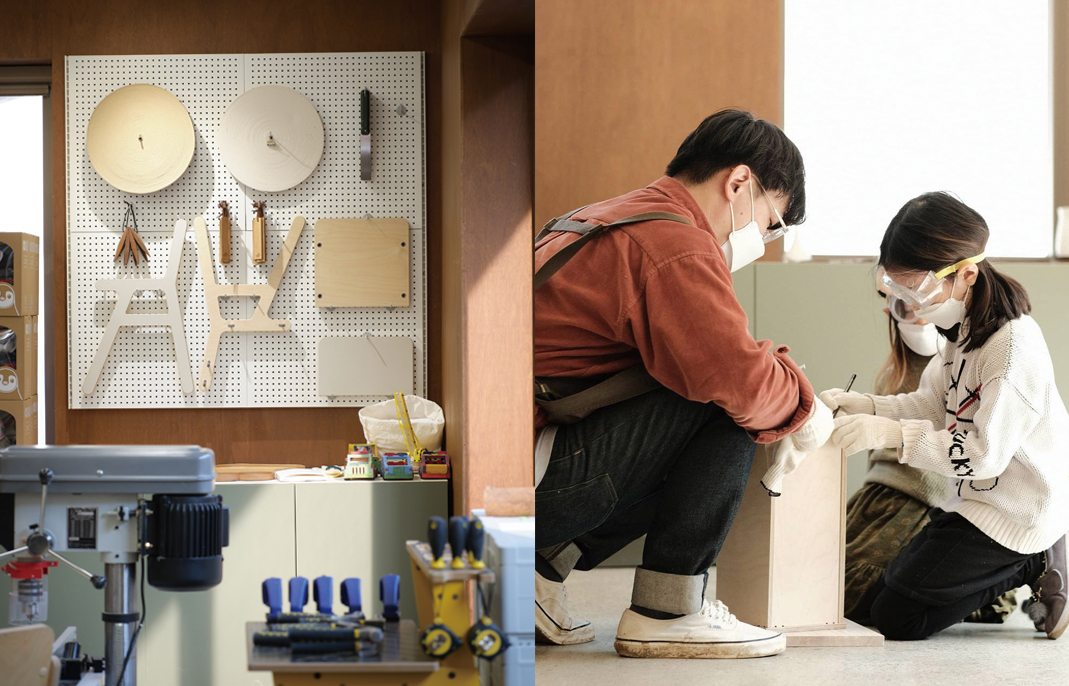
Owol School offers a woodworking class. © Owol School(Right)
A Place for Bonding
with Family
Owol School has become a place where anyone can rest and enjoy leisure time amid the beauty of nature. It is also a place where visitors can learn about the meaning of family. This is all thanks to the philoso-phy of Choi Sang Hee, Owol School’s owner, who has spent a lot of time thinking the role of family.
Choi, who is a father himself, realized that kids calmly and positively accept their surroundings when they are with their parents, building confidence and social skills in the process. He began with the hope that Owol School would allow kids to learn about life from their parents.

Guests enjoy a barbecue in the ‘glamping’ zone. © Owol School
Choi then revamped the school’s old official residence and outside bathroom buildings, turning them into the “Owol Tree Creation Zone,” where he uses his own professional experience to have kids try out various woodworking projects. Kids can learn about wood with their parents in this space and work on projects alongside their parents using tools they would have never touched before―because they were considered too dangerous―to cut and saw into wood. While there is great significance in kids and parents spending time together, the things they build together during the woodworking programs give them some-thing tangible and valuable to remember throughout their lives.
While the school no longer has teachers or students, Choi hopes that Owol School is still a place where lots of learning takes place. He also hopes it is a space where kids see their parents as teachers and nature as a friend. Indeed, families who visit Owol School are creating countless of memories all around the school.
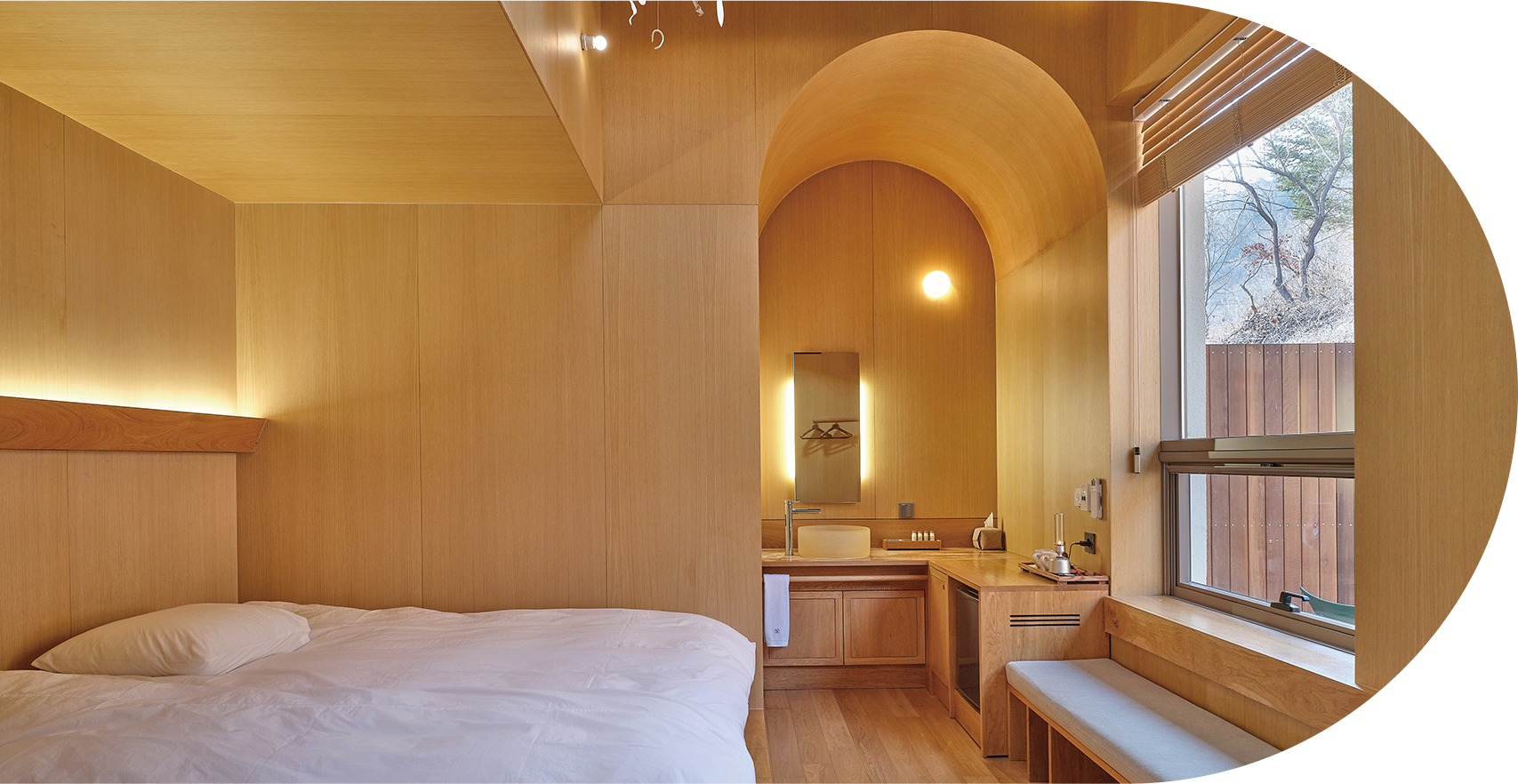
Some of the old school now serves as accommodations.
Other Articles
-

Special Ⅰ A School for Families
-

Special Ⅱ Hub of Artistic Exchange
-

Trend Nostalgic Flavors
-

Hidden View Garden for All
-
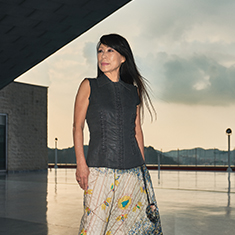
Interview Composer Unsuk Chin
-

Art of Detail Magnificent Munsal
-
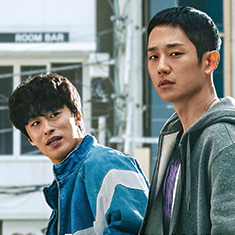
Film & TV D.P.
-
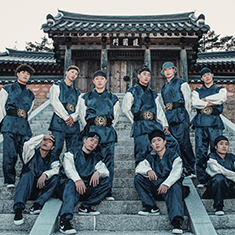
Collaboration Tradition Becomes Hip
-

Current Korea Korea’s Deeper Ties with UAE, Saudi Arabia, Egypt
-
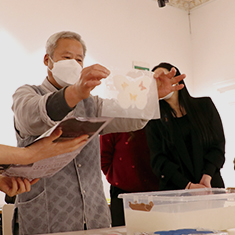
Global Korea Hanji Art Workshop in Italy
